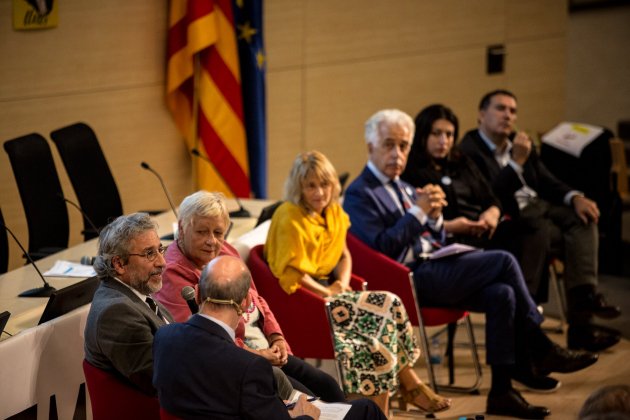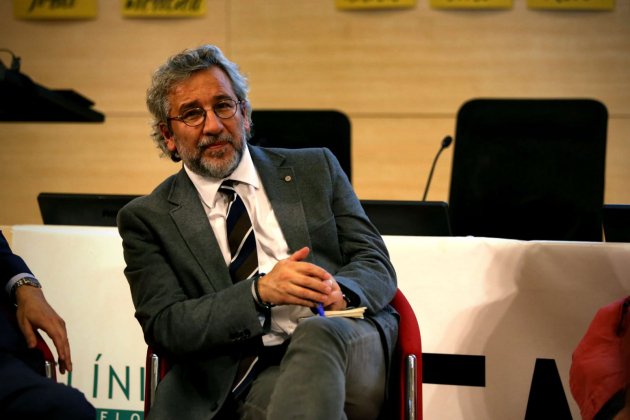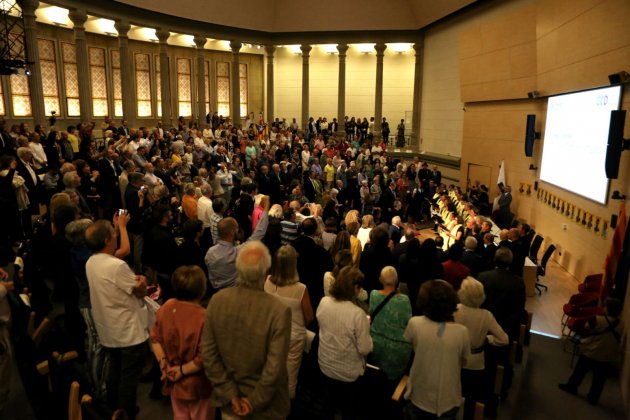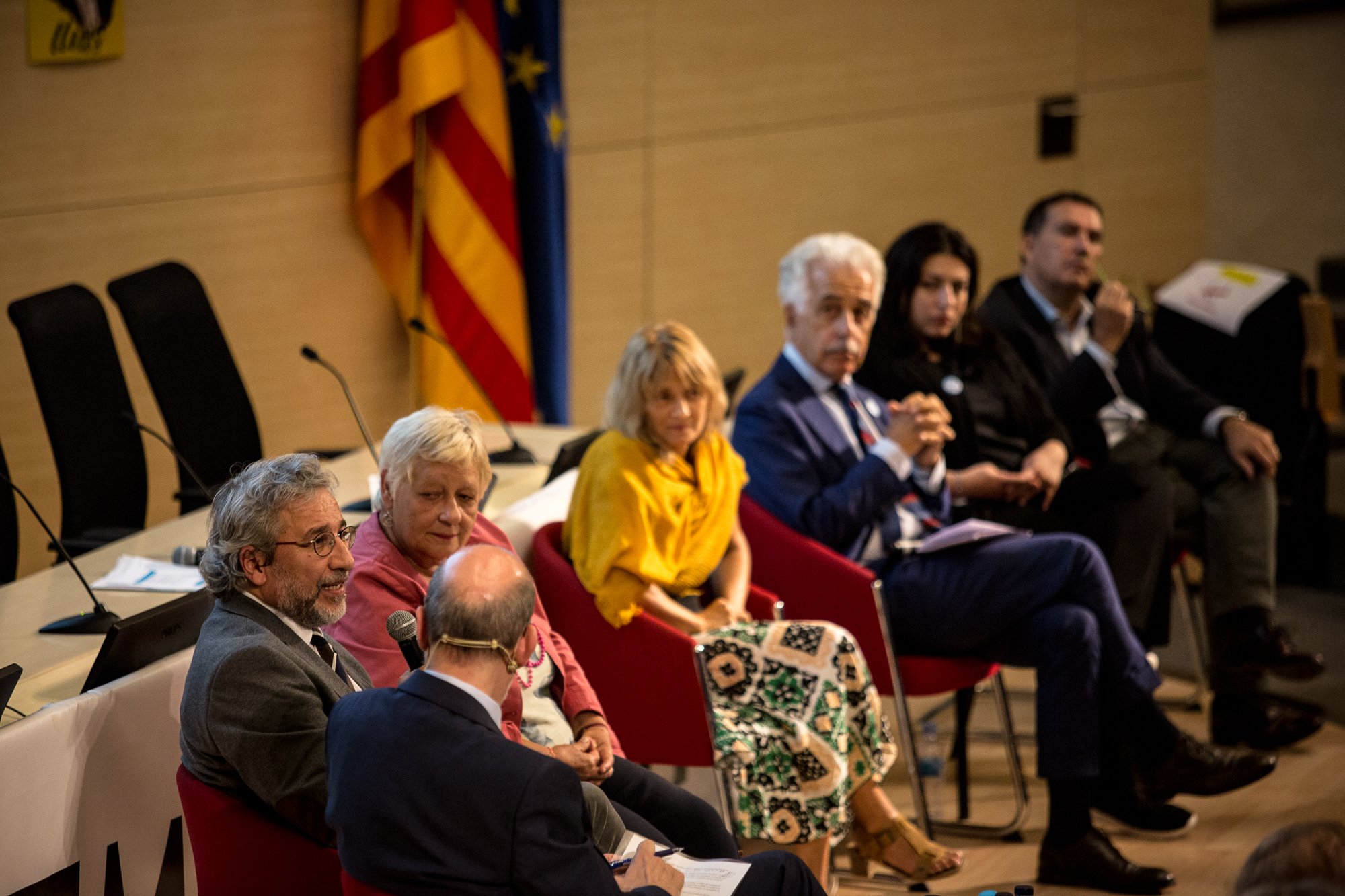International figures from different sectors have warned this Tuesday of the consequences it could have for Europe if other states follow the lead of Spain with how it has treated the issue of Catalonia, and that the European Union has "closed its eyes" to the situation. This came from the debate "Catalonia to the world", organised this evening by the association Foreign Friends of Catalonia at the University of Barcelona.

Taking part were figures like the Turkish journalist Can Dündar, who was imprisoned by Erdogan's government and is currently living in exile in Germany; Dominique Noguères, human rights lawyer; Alessandro Gamberini, lawyer for Sea Watch captain Carola Rackete; and Rossella Selimini, professor of sociology and criminology at the University of Minnesota and vice-president of the association. From Catalonia was lawyer and Congress deputy Jaume Alonso Cuevillas.
They all denounced the situation of the political prisoners and criticised the Spanish government's reaction against the Catalan independence push. Selimini compared the repression of Catalonia with cases in Poland, Hungary and Turkey. "I'm worried for Catalonia, but also for how this repression could spread to the rest of Europe," she said. She noted, however, that if Spain is a model for other countries, Catalonia is an "example of fighting" for other communities, the "greatest [such] representation [...] of recent decades" in Europe.

Similarities between Spain and Turkey
Can Dündar said that Turkey and Spain have "something in common", noting that members of Erdogan's government have justified their repression by citing the example of Catalonia, and expressed regret that Europe is turning a blind eye. The journalist also took the opportunity to recall his visit to the pro-independence prisoners in Lledoners. He said it was a "very strange" feeling for him, having been "on the other side" himself only three years before. Dündar said he wishes to be able to see the prisoners and exiles free in Barcelona or Istanbul soon, and called on the Catalan people to fight "arm-in-arm" with them. He also said his lawyers had recommend he not visit Spain for fear of arrest, but said he wanted to accept the "challenge" and that he was "proud" of being in Catalonia.
Dominique Noguères explained what had surprised her most about the trial in the Supreme Court, like the prohibition on showing video evidence whilst witnesses were speaking, and that certain police officers gave contradictory testimony. In short, she said the process "is not serious". She said the "use of justice to contain opinions is very dangerous". Fellow lawyer Alessandro Gamberini agreed that the law of one state cannot be about international law and basic principles; he also defended the right to self-determination.

"Spain is a democracy full of holes"
Finally, Jaume Alonso Cuevillas said the problem isn't Spanish law or the Constitution, rather "its guardians". He said that Spain's democracy is "full of holes" and made of "papier mache". He that it's all a "farce" and a "show" that the state is trying to dress up in democracy and legality, and that the powers-that-be in Spain have "conspired to set as the most important value of the legal code the unity of Spain". The lawyer added that you don't have to be a great legal scholar to know that the pro-independence leaders on trial in Madrid did not commit either rebellion or sedition. "There's no greater tyranny than that done under the appearance of the law," he concluded.
The event, hosted by the journalist Antoni Bassas, attracted some 500 audience members, including a number of relatives of the prisoners. A number of members of the Foreign Friends of Catalonia are also planning to go to tomorrow's demonstration in Barcelona.

